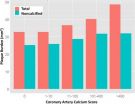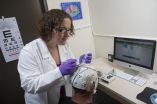(Press-News.org) A group of former senior editors, writing in The BMJ today, criticise a "seriously flawed and inflammatory attack" by The New England Journal of Medicine (NEJM) on what that journal believes have become overly stringent policies on conflicts of interest.
The NEJM was the first major medical journal to introduce conflict of interest policies in 1984. It required all authors to disclose any financial ties to health industries and made conflict of interests more transparent.
But recently the NEJM published a series of commentaries and an editorial that attempt to justify and rationalise financial conflicts of interests in medicine, and assert that there are negative consequences of such policies.
The articles by national correspondent, Lisa Rosenbaum, and supported by editor in chief, Jeffrey Drazen, "reinterpret and downplay the importance of conflicts of interest in medicine" and do not provide evidence to back claims, argue former senior editors from the NEJM.
They explain that the key concerns for medical journals are not about doctors and researchers being bought by drug companies, or being motivated by a desire for financial gain.
Rather the essential issue is that the objectivity of authors with financial conflicts of interest "might be compromised, either consciously or unconsciously and there would be no easy way to know whether it had been."
They explain that judges and journalists, for example, are expected to stay away from cases or stories in which they have a financial conflict of interest.
"Yet Rosenbaum and Drazen seem to think it is insulting to physicians and medical researchers to suggest that their judgment can be affected in the same way," they add.
The authors acknowledge that doctors and researchers sometimes have financial ties with industry for research and consulting specifically related to research, but argue that physicians who develop products and hold patents or receive royalties should not evaluate the products they develop.
Financial conflicts of interest have eroded the credibility of the medical profession, and doctors and the public expect journals to be trustworthy, they explain.
In addition, they commend The BMJ's introduction of a "zero tolerance" policy on educational articles by authors with any industry ties.
In an accompanying editorial, a group of senior editors at The BMJ also respond to NEJM's articles, saying that they are "deeply troubled by a possible retreat from policies that prevent experts with relevant commercial ties from authoring commentary or review articles."
Such policies were not motivated by a few events, as Drazen suggests, but by recognition of extensive, systemic problems, they add, and argue for a separation between doctors working with industry to develop treatments and those who can assess medical evidence without any conflict of interest.
While they agree that experts with industry funding may be able to express independent views, journal readers and editors do not have a reliable way to see which thoughts might be influenced. "Bias is not always overt or easily detected," they explain.
They conclude: "It is a mistake by NEJM to suggest that rigorous standards should be revisited. To do so would undermine the trustworthiness of medical journals and be a disservice to clinical practice and patient safety."
INFORMATION:
Bullying in teenage years is strongly associated with depression later on in life, suggests new research published in The BMJ this week.
Depression is a major public health problem with high economic and societal costs. There is a rapid increase in depression from childhood to adulthood and one contributing factor could be bullying by peers. But the link between bullying at school and depression in adulthood is still unclear due to limitations in previous research.
So a team of scientists, led by Lucy Bowes at the University of Oxford, carried out one of the largest ...
There is no strong evidence that the popular smoking cessation drug varenicline is associated with increased risks of suicidal behaviours, criminal offending, transport accidents, traffic-related offences, and psychoses, finds a study in The BMJ this week.
The findings are based on over 69,000 individuals in Sweden who were prescribed varenicline between 2006 and 2009. Previous reports suggesting a link may not have taken full account of underlying risk factors, say the authors.
Varenicline is widely prescribed for the treatment of nicotine dependence, but reports that ...
DURHAM, N.C. -- A long-term study of mother-child pairs in Pakistan has found that the children turn out pretty much the same, whether or not their mothers received treatment for depression during pregnancy.
An earlier study of the same population found that the mothers themselves benefited from the treatment, with less depression, and demonstrating related healthy behaviors with their newborns, such as breastfeeding. But those improvements were short-lived.
The "Thinking Healthy Programme" is a successful depression intervention evaluated through a randomized trial ...
Washington, DC--Relying on the better-functioning side of the body after a stroke can cause brain changes that hinder rehabilitation of the impaired side, according to an animal study published June 3 in the Journal of Neuroscience. Strokes that occur in one brain hemisphere can result in poor motor function on the opposite side of the body, leading to heavy reliance on the "good" side. This study, led by Soo Young Kim and performed at the University of Texas at Austin and the University of California, Berkeley, found that such compensation produces structural brain changes ...
OAK BROOK, Ill. -- Non-calcified arterial plaque is associated with diabetes, high systolic blood pressure and elevated 'bad' cholesterol levels in asymptomatic individuals, according to a new study published online in the journal Radiology.
Coronary artery disease (CAD) is the leading cause of death in men and women worldwide, accounting for 17 million deaths annually. Current treatment strategies focus on cardiovascular risk and serum cholesterol levels rather than direct assessment of extent of disease in the coronary arteries.
Plaque that forms in the arterial walls ...
A new study shows that social and sensory overstimulation drives autistic behaviors. The study, conducted on rats exposed to a known risk factor in humans, supports the unconventional view of the autistic brain as hyper-functional, and offers new hope with therapeutic emphasis on paced and non-surprising environments tailored to the individual's sensitivity.
For decades, autism has been viewed as a form of mental retardation, a brain disease that destroys children's ability to learn, feel and empathize, thus leaving them disconnected from our complex and ever-changing ...
You might not need to remember those complicated e-mail and bank account passwords for much longer. According to a new study, the way your brain responds to certain words could be used to replace passwords.
In "Brainprint," a newly published study in academic journal Neurocomputing, researchers from Binghamton University observed the brain signals of 45 volunteers as they read a list of 75 acronyms, such as FBI and DVD. They recorded the brain's reaction to each group of letters, focusing on the part of the brain associated with reading and recognizing words, and found ...
San Antonio -- June 2, 2015 -- A close-up of Comet 67P/Churyumov-Gerasimenko by NASA's ultraviolet instrument surprised scientists by revealing that electrons close to the comet's surface -- not photons from the Sun as had been believed -- cause the rapid breakup of water and carbon dioxide molecules spewing from the surface.
Since last August, the European Space Agency's Rosetta spacecraft has orbited within a hundred miles of the comet in this historic mission. The spectrograph onboard, named Alice, specializes in the far-ultraviolet wavelength band and was developed ...
Menopausal hormone therapy (MHT) given to recently postmenopausal women in the US for up to four years does not improve cognition, but may have some positive benefits for some mood symptoms, according to a study published by Carey Gleason and colleagues from the University of Wisconsin, Madison, USA, in this week's PLOS Medicine.
The researchers reached these conclusions by conducting a randomized placebo-controlled clinical trial (the KEEPS-Cog trial), including 693 recently postmenopausal women living in the US who were randomly assigned to receive either oral estrogen ...
What if your doctor told you that your weight is somewhere between 100 and 400 lbs.? With any ordinary scale every patient can do better at home. Yet, one patient can't: the Milky Way. Even though today we peer deeper into space than ever before, our home galaxy's weight is still unknown to about a factor of four. Researchers at Columbia University's Astronomy Department have now developed a new method to give the Milky Way a more precise physical checkup.
The Milky Way consists of roughly 100 billion stars that form a huge stellar disk with a diameter of 100-200 thousand ...

